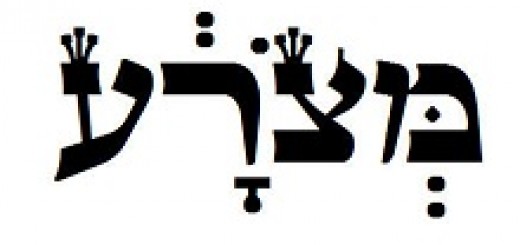By Shalom Olensky
This week in the Torah:
A prominent Levite, a cousin of Moses, named Korach, takes a large group of Jewish leaders to join him in a quarrel with Moses and Aaron.
Talmud (Sanhedrin 110a):
Anyone who persists in quarrel transgresses the Torah’s prohibition stated in the verse (Numbers 17:5) “One shall not be like Korach and his group.”
Analysis:
The above quote from the Talmud implies that Korach’s quarrel was mainly for the quarrelling itself. Hence, any quarrel, regardless of the subject matter, can be compared to “Korach and his group.”
Question:
Korach is said to have been wise. Therefore, he probably fought with Moses and Aaron, simply because he felt responsibility to correct a mistaken understanding in the ways of serving G-d Almighty. However, if so, and based on the above analysis, how could he have thought quarrelling to be a mode of Divine service??
Explanation:
In Jewish Mysticism, quarrel is rooted in the divide between spiritual pleasure and physical pleasure.
G-d intentionally separated the two, a) so that those entrapped by physical pleasures should yearn to rise above this and take pleasure from only the spiritual and b) so that eventually Divinity will show itself in physicality. The former (physical yearning for spiritual) is the method by which to reach the latter (Divinity revealed in physicality) which will be fulfilled when Moshiach comes.
Korach saw the divide’s destiny (Divinity revealed in physicality) as paramount, and the interim period of physical yearning for spiritual, secondary and immaterial. And that was his mistake.
For, there is great value to the means (to the end) which makes them worthwhile. For, the physical yearning for spiritual is above the natural order, yet, within nature – a union of opposite characteristics made possible by G-d alone.
Lessons:
- Quarrel is a result of tension between physicality and spirituality. As long as one does not persist to argue, peace will surface, a greater peace than there could have been before the quarrel.
- One can find G-d in physicality as well. However, for now, one’s involvement with physicality must be curtailed to what is necessary for spiritual purposes. Thereby, one will not be dragged down by the physical; instead Divinity will be revealed throughout.
- The closer we get to Moshiach’s coming, the more we are empowered to see the light of Divinity, generated by Torah and Mitzvah observance, illuminate our involvement with physicality as well.
(Based on Chassidic Discourse Hasam Nafsheinu Bachayim—5718)






















